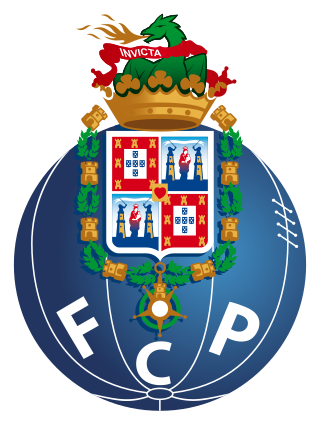Related Research Articles

Portugal, officially the Portuguese Republic, is a country located on the Iberian Peninsula in Southwestern Europe, whose territory also includes the Macaronesian archipelagos of the Azores and Madeira. It features the westernmost point in continental Europe; its mainland west and south border with the North Atlantic Ocean; and in the north and east, the Portugal-Spain border, which constitutes the longest uninterrupted border line in the European Union. Portugal is the oldest nation-state in Europe. Founded in 1143, its current borders were established in mid-13th century, making them some of the most ancient in Europe and the world. Its archipelagos form two autonomous regions with their own regional governments. On the mainland, the Alentejo region occupies the biggest area but is one of the least densely populated regions of Europe. Lisbon is the capital and largest city by population, and it is also the main spot for tourists alongside Porto, the Algarve and Madeira.

Porto, also known as Oporto, is the second largest city in Portugal, after Lisbon. It is the capital of the Porto District and one of the Iberian Peninsula's major urban areas. Porto city proper, which is the entire municipality of Porto, is small compared to its metropolitan area, with an estimated population of just 248,769 people in a municipality with only 41.42 km2 (16 sq mi). Porto's metropolitan area has around 1.8 million people (2023) in an area of 2,395 km2 (925 sq mi), making it the second-largest urban area in Portugal. It is recognized as a global city with a Gamma + rating from the Globalization and World Cities Research Network.

Porto Alegre is the capital and largest city of the Brazilian state of Rio Grande do Sul. Its population of 1.3 million inhabitants (2022) makes it the 11th-most populous city in the country and the center of Brazil's fifth-largest metropolitan area, with 4.4 million inhabitants (2010). The city is the southernmost capital city of a Brazilian state.

Futebol Clube do Porto, MHIH, OM, commonly known as FC Porto or simply Porto, is a Portuguese professional sports club based in Porto. It is best known for the professional football team playing in the Primeira Liga, the top flight of Portuguese football.

The Porto Metropolitan Area is a metropolitan area in northern Portugal centered on the City of Porto, Portugal's second largest city. The metropolitan area, covering 17 municipalities, is the second largest urban area in the country and one of the largest in the European Union, with a population in 2021 of 1,737,395 in an area of 2,040.31 km².

TV Globo, formerly known as Rede Globo, is a Brazilian free-to-air television network, launched by media proprietor Roberto Marinho on 26 April 1965. It is owned by media conglomerate Grupo Globo. The network is by far the largest of its holdings. TV Globo is the largest commercial TV network in Latin America and one of commercial TV networks in the world and the largest producer of telenovelas. All of this makes Globo renowned as one of the most important television networks in the world and Grupo Globo as one of the largest media groups.

The Primeira Liga, officially known as Liga Portugal Betclic for sponsorship reasons, is the top level of the Portuguese football league system. Organised and supervised by the Liga Portugal, it is contested by 18 teams since the 2014–15 season, with the three lowest-placed teams relegated to the Liga Portugal 2 and replaced by the top-three non-reserve teams from this division.

TVI - initialism for Televisão Independente - is Portugal's fourth terrestrial television channel, launched in 1993. It was the most watched channel in Portugal from 2005 to 2019. It competes directly with SIC and RTP1. It is one of the two private free-to-air channels in Portugal, among the seven terrestrial free-to-air channels broadcasting from the country.

The North Region or Northern Portugal is the most populous region in Portugal, ahead of Lisbon, and the third most extensive by area. The region has 3,576,205 inhabitants according to the 2017 census, and its area is 21,278 kilometres (13,222 mi) with a density of 173 inhabitants per square kilometre. It is one of five regions of Mainland Portugal. Its main population center is the urban area of Porto, with about one million inhabitants; it includes a larger political metropolitan region with 1.8 million, and an urban-metropolitan agglomeration with 2.99 million inhabitants, including Porto and neighboring cities, such as Braga, Guimarães and Póvoa de Varzim. The Commission of Regional Coordination of the North (CCDR-N) is the agency that coordinates environmental policies, land-use planning, cities and the overall development of this region, supporting local governments and associations.
RTP2 is a Portuguese free-to-air television channel owned and operated by state-owned public broadcaster Rádio e Televisão de Portugal (RTP). It is the company's second television channel, and is known for broadcasting cultural, factual and children's programming without interruptions, including documentaries, concerts, theatre and independent, European and classic cinema.

SIC is a Portuguese television network and media company, which runs several television channels. Their flagship channel is the eponymous SIC, the third terrestrial television station in Portugal, launched on 6 October 1992. SIC is owned by Grupo Impresa, a Portuguese media conglomerate. It is one of the two private free-to-air channels in Portugal, among the seven terrestrial free-to-air channels broadcasting from the country. It was the most-watched channel in Portugal from 1995 to 2005, and again from 2019 to today.

Time in Brazil is calculated using standard time, and the country is divided into four standard time zones: UTC−02:00, UTC−03:00, UTC−04:00 and UTC−05:00.

Porto Canal is a Portuguese pay television channel broadcasting from northern Portugal based in Matosinhos. Launched on 29 September 2006, it replaced former NTV which transformed into RTPN, Radiotelevisão Portuguesa's news channel.

TVTEL was a Portuguese cable pay television and digital satellite service provider. The cable service started in 2001 in the Porto area, acting as its regional operator. In 2007 the provider increased its reach, starting its fiber network in parts of the Lisbon metropolitan area and nationwide by satellite. The satellite service started on 26 June 2007 and it was on the Eurobird 9 satellite, broadcasting FTA and Conax-encrypted channels for the whole of Europe. It was bought by ZON Multimédia in early 2009 and subsequently closed by it by merging its operations with ZON in late 2009.
Canal Panda is a Portuguese pay television channel, the first one dedicated to kids programming, mostly animated series for children aged 6–14. The channel was founded in 1996 as Panda Club in Spain and Portugal, but the name was changed to Canal Panda in 1997. In 2001, the channel was closed down in Spain, thus focusing on the Portuguese market. It was relaunched in Spain in 2011 and closed down again in 2022. Canal Panda is currently owned by Dreamia, a joint-venture between AMC Networks International Iberia and NOS, in addition of the linear channel, it operates the Panda+ SVOD service.
Benfica TV (BTV) is a Portuguese sports-oriented premium cable and satellite television channel operated by sports club S.L. Benfica. Its headquarters are located at the Estádio da Luz, having a second studio at Benfica Campus. Its first broadcast was on 2 October 2008, and regular transmissions began on 10 December. The channel was originally made available for free on all of its cable operators until June 2013.

Canal180 is a Portuguese editorial platform, digital cable and open source TV channel entirely dedicated to culture, arts and creativity.
Globoplay is a Brazilian subscription video on-demand over-the-top streaming service owned by Grupo Globo. The service primarily distributes films and television series produced by Estúdios Globo with the service also hosting content from other providers, content add-ons, live sporting events, and video rental and purchasing services. It was created on October 26, 2015, and launched in Brazil on November 3 of the same year. In 2020, it reached the milestone of 20 million registered users and became the most used national streaming service in Brazil.

Cable News Network Brazil is a Brazilian news-based pay television channel and news website. Launched on 15 March 2020, CNN Brazil is owned by Novus Media, a joint-venture between Douglas Tavolaro, former header of Record's news division, and Rubens Menin, owner of MRV Engenharia. Novus Media has a licensing agreement with original CNN channel owned by Warner Bros. Discovery. CNN Brazil is the second local franchise of CNN in South America, after CNN Chile.

Gloob, also known as Mundo Gloob, is a Brazilian pay television children's channel that was launched on 15 June 2012, aimed at children 6 to 12 years old. Owned, operated and part of Canais Globo, a television broadcast network, and subsidiary of Grupo Globo. Its name is an anagram of the word 'Globo', as in 'O Globo', reversing the letter "O" before the "B".
References
- ↑ "Meios de Comunicação: Novum Canal" (in Portuguese). Portal da Região Tâmega e Sousa. Retrieved 22 July 2020.
- ↑ "Estação de TV do Norte de Portugal é Invadida" (in Portuguese). O Paivense. Retrieved 25 July 2020.
- ↑ "Novum Canal: Ficha Técnica" (in Portuguese). Novum Canal. Retrieved 22 July 2020.
- ↑ "Diretor do Novum Canal fala sobre imparcialidade no jornalismo no 'Mesa Filosófica' com Fabiano de Abreu" (in Portuguese). O Paivense. Retrieved 25 July 2020.